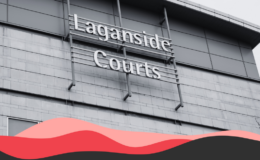- There is no specific offence of hate crime. In fact, the term “hate crime” has no agreed legal definition.
- However, it exists as a practical concept within the justice system, recognised by police and the courts.
- The way hate crimes are sentenced effectively treats them as crimes aggravated by hatred – however, there are strong arguments that this is a practical approach that fails to reflect what a hate crime actually is.
In a social media post on 1 August, commentator Newton Emerson claimed:
“There’s no such thing as’’a hate crime’ under NI law, only crimes aggravated by hatred.”
This claim has two parts: there is no such thing as a hate crime under NI law; instead there are only crimes aggravated by hatred.
Both parts have plausible arguments for why they are accurate – as well as reasons why they are incorrect or, at least, a bit misleading.
For the first part, this depends on what is meant by “under NI law”. Hate crimes exist as a working concept within the NI justice system but there is no specific offence of “hate crime” and, indeed, no agreed legal definition of what a hate crime actually is.
For the second, the current legal structures for dealing with hate crimes amount to effectively treating them as crimes aggravated by hatred. However, there are solid arguments that this is a practical shortcut that doesn’t reflect the reality of what a hate crime is.
Any differences rely on technical arguments, the lack of an agreed definition of hate crime, and some semantics.
To get into the weeds of hate crimes in Northern Ireland, read on.
Is there an agreed definition of ‘hate crime’?
The Police Service of Northern Ireland (PSNI) defines hate crime as:
“When someone is attacked or abused in any way because of who they are, where they come from, what they believe or who they choose to love.”
The Public Prosecution Service of Northern Ireland (PPS) provides a different wording:
“Hate crime is a general term used to describe offences which are motivated by hostility or bias on the basis of race, religion, sexual orientation, transgender or disability”.
Is a hate crime simply an ordinary crime aggravated by hate? The police definition of a hate crime seems to say something slightly different, in that hatred is the motive for the crime – implying it would not have taken place but for that aspect. This is supported by several other pieces of PSNI public messaging, including the fact that its statistics refer to “incidents and crimes with a hate motivation”.
At face value, the PPS definition supports this interpretation. However, the matter is not clear cut, as the PPS also states:
“There is no legal definition of hate crime but it is generally accepted as being ‘any incident which constitutes a criminal offence perceived by the victim, or any other person, to be motivated by prejudice or hate towards a person’s race, religion, sexual orientation or disability’.”
So, there is no specific offence of “hate crime”. However, it is used for categorisation within the criminal justice system, to indicated offences where a crime is committed and the motivation for that crime is – or the victim of that crime perceives the motivation to be – prejudice, based on the victim’s race, religion, sexual orientation, gender identity, or disability.
Plans for clarity
While it’s not codified today, clearly hate crimes exist as a working concept in Northern Ireland’s justice system and they are used and acted upon in specific ways by police, prosecutors and the courts.
The Department of Justice launched a review of hate crime legislation in June 2019. The results of that review were published in December 2020. Key findings of that review included:
- There is no clear and universally accepted definition in law or related disciplines of the term “hate” or “hate crime”.
- At present, no specific offence of “hate crime” exists in NI.
- Hate crimes are distinct from hate speech (criminal expressions of bigotry) – with hate speech offences “generally considered separate to and apart from hate crime laws”.
- All hate crimes involve an act or acts that would be crimes even without any element of hatred. What makes a criminal act a hate crime is that it was motivated by prejudice or bias, where “[the] victim is selected because of their real or perceived connection, attachment, affiliation, support or membership of a protected group.”
The review also notes that:
“The Criminal Justice (No. 2) (Northern Ireland) Order 2004 (the 2004 Order) was introduced to ensure that the perpetrators of offences aggravated by hostility received a higher sentence following conviction. This law enables a sentence to be increased where it is proven that the basic offence of which a person has been convicted was motivated by hostility against one of the currently protected characteristics (race, religion, sexual orientation or disability) or where the offender demonstrated hostility against one of those characteristics either at the time of committing the offence or immediately before or after it.”
The review says that “provision for hate crime in Northern Ireland centres exclusively on the enhanced sentencing provisions of the 2004 Order”.
This is notable because of the following criticism of the enhanced sentencing model, contained within the DoJ review:
“If the element of ‘hate’ is left to the sentencing stage, the law seems to be treating the ‘hate’ element as another type of aggravation on a par with a number of other aggravating factors, such as vulnerability. However, by putting the ‘hate’ element into the offence stage, the legislature would be making it clear that the ‘hate’ element means that a different sort of wrong/harm has been caused by the defendant – one that cuts to the heart of our values as a progressive liberal society. I believe that that principle is seriously diluted in a sentencing only system.”
Although the review was published over two years ago, fundamentally nothing has changed with the legal structure of hate crimes in NI since then.
Minutes from a Justice Committee meeting in January 2022 indicate that work was being done on a possible Hate Crime Bill. The Executive collapsed a month later, largely putting a halt to new legislation.
Conclusion
Is there such a thing as a hate crime under NI law? That depends on what you mean by “under NI law”. Hate crime is not a specific offence. Hate crime has no agreed legal definition. However, it is still a concept recognised and used in policing and the courts.
Instead of hate crimes, do we have crimes aggravated by hatred? The current sentencing structure effectively does just that. At the same time, this may not reflect what a hate crime actually is.
Taken altogether, the claim is accurate with consideration.




